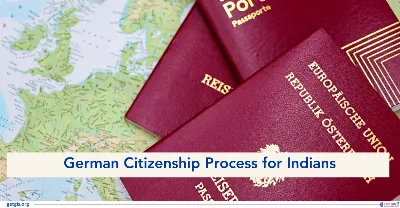MBA in Canada Without GMAT in 2025-26: Complete Guide for Indian Students
Updated On
-
Copy link
Top B-schools like Thompson Rivers offer MBA programs with GMAT waivers for qualified candidates, although they do require a strong GPA, solid work experience, or advanced degrees.
Limited-time offer : Access a free 10-Day IELTS study plan curated for you

Table of Contents
To pursue an MBA in Canada without GMAT in 2025-26, you will need a strong academic record, relevant work experience, and compelling application materials. Many Canadian universities offer MBA programs that waive the GMAT requirements for qualified candidates.
In this 2025 guide, we have jotted down types of GMAT-free programs in Canada, top MBA colleges without GMAT in Canada and more.
Types of GMAT-Free MBA Programs in Canada (2025)
Canada provides a range of MBA programs with various specialization options, allowing individuals to pursue their preferred and suitable areas of study. Here are the types of GMAT-free MBA programs available in Canada in the table below.
|
Type of MBA |
Description |
|
Part-Time MBA |
Allows students to pursue an MBA while working part-time. Offers flexibility for those who want to balance work and study. |
|
Full-Time MBA |
A traditional full-time MBA program that requires students to dedicate themselves to intensive, immersive study. |
|
Executive MBA (EMBA) |
Designed for experienced professionals in executive roles. Tailored to accommodate the schedules and needs of working executives, often with weekend or evening classes. |
|
Accelerated MBA |
Intensive program completing the MBA curriculum in a shorter time frame than traditional full-time programs, often through a more rigorous schedule. |
|
MBA with Co-op |
Includes a cooperative work experience alongside academic studies, providing students with practical, real-world exposure and enhancing their employability. |
|
Blended Learning Part-Time MBA |
Combines online and in-person classes, offering flexibility for working professionals. Allows for remote learning while still incorporating face-to-face interactions. |
|
Online MBA |
Entirely conducted online, providing flexibility in study for those who may not be able to attend traditional in-person classes. Allows for remote learning from anywhere. |
|
Dual Degree MBA |
Provides the opportunity to earn two degrees concurrently, often combining an MBA with another specialized master's degree in a related field. |
|
Specialized MBA |
Focuses on a specific area of business, such as finance, marketing, or healthcare, allowing students to gain expertise in a particular industry or skill set. |
Top MBA Colleges in Canada Without GMAT
Specifically, MBA programs in Canada usually demand 1 to 2 years of prior work experience from applicants. However, certain institutions make exceptions for international students by admitting them without any work experience requirement and without the need for GMAT scores. Here is a compilation of leading MBA universities in Canada that fall into this category.
The table presented below offers a summary of various universities, their average tuition fees, and popular courses. Take a closer look at the table to gather further information.
|
University |
Popular MBA Course Offered |
Average Tuition Fee (CAD) |
Average Tuition Fee (INR) |
|
Thompson Rivers University (TRU) |
Master of Business Administration (MBA) |
23,000 |
14,30,103 |
|
Dalhousie University |
Corporate Residency MBA |
18,197 |
11,31,459 |
|
Smith School of Business (Queen’s University) |
Full-Time MBA |
106,000 |
65,90,907 |
|
University of Alberta |
MBA |
57,909 |
36,00,687 |
|
Saint Mary’s University |
Executive MBA |
44,800 |
27,85,591 |
|
Vancouver Island University (VIU) |
Master of Business Administration (MBA) |
55,915 |
34,76,703 |
|
New York Institute of Technology (NYIT) |
MBA in Management |
49,736 |
30,92,504 |
|
Cape Breton University |
MBA in Community Economic Development |
46,140 |
28,68,909 |
|
Ivey Business School (Lakehead University) |
MBA |
30,000 |
18,65,351 |
|
Schulich School of Business (York University) |
MBA (Master of Business Administration) |
60,000 |
37,30,702 |
MBA Admission Requirements in Canada Without GMAT 2025-26
Individuals aspiring to pursue an MBA in Canada without the need for GMAT can familiarize themselves with the admission prerequisites outlined below,
- Academic Documentation: Students are required to submit proof of academic qualifications, including the provisional certificate, mark sheets, and additional certificates related to their undergraduate degree. A minimum GPA of 3.0 or higher in an undergraduate degree from a recognized university is mandatory.
- Work Experience: A minimum of two years of work experience, either on a full-time or part-time basis, is necessary. Additionally, applicants should have completed four years of undergraduate courses.
- English Language Proficiency: Candidates must demonstrate proficiency in the English language by achieving an IELTS score of 6.5 or 7 bands, or a TOEFL iBT score ranging from 80 to 100 overall.
- Statement of Purpose (SOP): An integral component of MBA university admissions, the SOP is a comprehensive document that outlines a student's academic performance, internships, professional background, skills, and future goals.
- Letters of Recommendation: Many business schools require a minimum of two or three letters of recommendation, which can be obtained from a teacher, professor, or workplace manager.
- Resume or CV: Some MBA colleges mandate the submission of an updated resume or curriculum vitae during the application process.
- GRE Score (for Specific Streams): Aspiring students looking to specialize in streams like Business Analytics or Finance need to provide a GRE score.
- Passport and Study Visa: Applicants must possess a valid passport and secure a study visa for Canada.
Also Read: Top 20 Best Courses to Study After MBA in Canada
Steps To Get an MBA in Canada Without GMAT
To get an MBA in Canada without a GMAT, here are some of the essential steps to be followed.

Step 1: Achieve a Strong GPA
- Aim to exceed the minimum GPA requirements set by your chosen university for MBA admission.
- Establish a solid academic foundation during your undergraduate studies.
Step 2: Gain Work Experience
Accumulate a few years of relevant work experience to strengthen your MBA application.
Some MBA programs may exempt the GMAT requirement based on your work history.
Step 3: Highlight Your Degree, Internships, and Skills
- Showcase your bachelor's degree prominently in your resume.
- Highlight any relevant internships and the skills you have developed during your academic and professional journey.
Step 4: Craft a Well-Structured Resume
- Create a compelling resume that emphasizes your educational background, work experience, and acquired skills.
- Tailor your resume to align with the specific requirements and values of the MBA program.
Step 5: Secure Compelling Letters of Recommendation
- Obtain strong letters of recommendation that attest to your academic prowess, work ethic, and suitability for an MBA program.
- Letters of recommendation play a crucial role in demonstrating your qualifications, especially without a GMAT score.
Step 6: Submit Application
- Carefully fill out the MBA program application, addressing each component with attention to detail.
- Provide a well-crafted personal statement or essay that outlines your academic and professional journey and articulates your aspirations.
Following these steps increases your chances of gaining admission to an MBA program without the GMAT requirement.
Elevate Your Education in Canada in 2024 With GetGIS Assistance
Beginning your academic pursuit in the top Canadian MBA programs without the GMAT can offer a transformative experience, enriched with vibrant cultural experiences and strong support systems.
If you require guidance in selecting and navigating the process of studying in Canada, turn to GetGIS, your trusted study-abroad assistance partner. Our immigration professionals possess the comprehensive knowledge and expertise needed to facilitate your seamless and hassle-free transition to Canada.
Useful Links:
- Top 20 Best Courses to Study After MBA in Canada
- List of Top Ten MBA Colleges in the World
- Best MBA Universities in Canada 2025
- Best Country to Study an MBA and Settle for Indian Students
- MBA Jobs in Canada
- Study MBA in Canada Without Work Experience 2025-2026
- 1 Year MBA in Canada in 2025-26
Limited-time offer : Access a free 10-Day IELTS study plan curated for you

Frequently Asked Questions
Can I do an MBA in Canada without GMAT?
Which MBA does not need GMAT in Canada?
What is the easiest MBA program to get into in Canada?
Which exam is accepted instead of GMAT for MBA in Canada?
Do I need work experience for MBA without GMAT in Canada?





